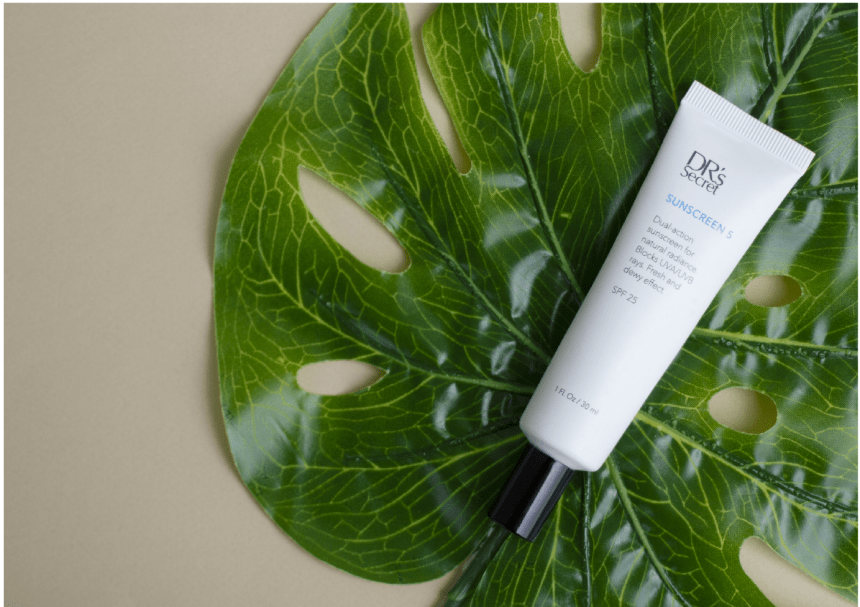1. Higher SPF equals to a better sunscreen
Not always.

A common misconception is that SPF (Sun Protection Factor) helps to measure the length of time a sunscreen can protect you from UVB rays. Thus, SPF 25 means that it will take you 25 times longer to get a sunburn as compared to when you were not wearing sunscreen.
However this is not true, the USA FDA clarifies that SPF actually measures the amount of solar energy it takes to cause sunburn on protected skin when compared against unprotected skin. As the SPF value increases, sunburn protection increases.
We might then assume that wearing a high SPF of 100 means that we will be well-protected. This gives a false sense of security, which deters people from reapplying. In reality, chances are that our sunscreen could come off when we sweat or as we go about our daily activities.

Regardless of the SPF, it is recommended to reapply sunscreen every two hours, especially if you are under the sun with a minimum of SPF 15 for protection.
SPF 15 blocks 93% of UVB rays, SPF 30 blocks 97% of UVB rays and SPF 50 blocks 98% of UVB rays. The increase is not too significant (note: no sunscreen can totally block out UVB rays) and only applies to UVB rays that are responsible for sunburn. On the other hand, UVA rays go deeper into the skin and are largely responsible for ageing effects and skin cancer.
Rather than putting all your bets on the highest SPF available, it is recommended to look for a sunscreen above SPF 25 and one that says “broad-spectrum”, which helps to protect the skin against both UVB and UVA rays.
Look for a formulation that suits your skin as the sunscreen that you enjoy putting on is the one that you will apply most frequently.
2. My skin feels oily during the day, therefore I must have oily skin
Not all oily skin types are the same. Overproduction of sebum could be a result of dehydrated skin.
Skin that’s dry on the inside causes your sebaceous glands to produce more sebum to compensate for the water loss.

Without the right judgment, you could be using oil-free cleansers and products, or even skipping moisturiser. These may further strip your skin of moisture and aggravate dehydrated skin.
To determine if you are a true blue oily skin type or actually have oily dehydrated skin, try to observe if your skin feels greasy on the outside but tight on the inside. If you notice visible fine lines around the forehead, eyes or mouth areas, chances are that your skin might actually be dry and dehydrated.
Those with oily skin usually have a plumper skin texture and lesser fine lines.

If your skin is actually dehydrated, it is crucial to use hydrating products such as DR’s Secret Toner T2 and Moisturizer 6 to increase the moisture on your skin. The oiliness you feel will reduce eventually when your skin becomes more hydrated.
3. Having more steps in my routine is always better
While it is tempting to pile on actives and ingredients that promise skin transforming benefits, it is more important to consider what your skin really needs right now.
For example, including intensive serums and ampoules when your skin is struggling with sensitivity may cause your skin to feel overwhelmed, leading to further irritation.

A simpler foundational routine may actually be more effective in restoring your weakened skin barrier and encouraging skin recovery.
Allow your skin to recover and avoid burdening your skin with too many steps. If you wish to add on new products, try incorporating them one at a time into your skin routine and observe how your skin responds to it.
That way, you will be able to quickly identify which are the products that are causing you discomfort if any.

On the flip side, should your skin be healthy and generally stable, you can opt for a more intensive regime to boost its glow.
It is always good practice to understand the products you are adding into your routine, which is why we recommend that you check back with your DR’s Secret skin consultant for a customised routine tailored to your skin.
4. My skin will eventually “get used” to products
Have you ever started on a product or routine for the first few times and were amazed by its remarkable effects? Over time, however, it seems that the effects are no longer as ‘lifechanging’ and the same product no longer ‘wow’ you.
Does this mean that your skin has gotten immune to your products?
No, your skin doesn’t become immune to products.
Many people tend to feel this way largely due to perception. When your skin was down and out, the initial visible effects you saw were prominent and obvious. It is natural that after prolonged use, your skin would get better and the contrast is less stark.

While the product stays constant, our skin is constantly changing with our lifestyle, seasons and age. At different life stages, our skin may require different nutrients to cope with the changes.
This doesn’t mean that you should throw out the moisturiser or serum that has been working for you. However, you can make adjustments to your skin care routine to better cater to its needs.

Include 1 or 2 items at a time such as masks or serums for glow boosting effects. For DR’s Secret users, feel free to approach you skin consultant to review your current routine and customise one that would better meet your needs.


Great content! Super high-quality! Keep it up! 🙂
Thank you 🙂